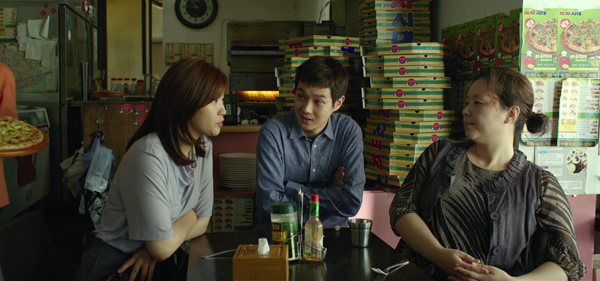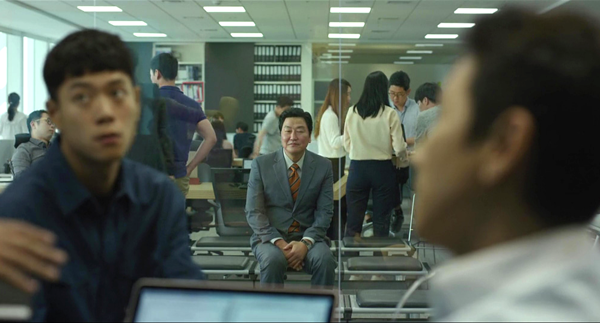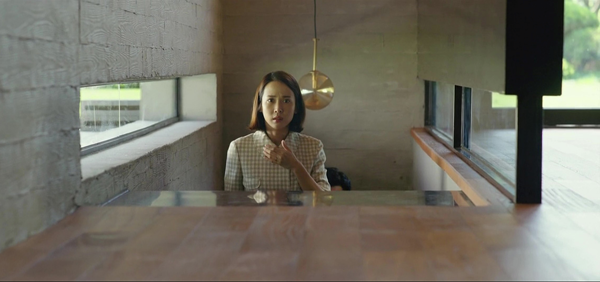
Korean director Bong Joon Ho’s movies are typically the type that receive large amounts of critical praise followed by a small cult fervor upon video release. His breakout English language feature, Snowpiercer, followed the same trajectory, but garnered a larger cult fan base with the help of Captain America in the lead role and a gonzo plot that blended dystopian social commentary with some gritty ultraviolence set entirely on a speeding train. His latest film, Parasite, recently won four major Oscars at the Academy Awards, including Best Picture, and honestly, I can’t quite explain why it had such a different trajectory than his previous films.
That’s not to say that Parasite isn’t good (it is), or that it isn’t deserving (who’s to say), but rather that it’s not a huge departure for Bong Joon Ho in terms of style and theme. Parasite revolves around a lower-class family living in a cramped, semi-basement apartment. Barely scraping to get by, the Kims earn a meager living folding pizza boxes as a family, and they save money by leaving the window open during street fumigation (free pest control against their stink bug problem). When the son gets an opportunity to impersonate an English tutor for a rich family, the Parks, he quickly makes himself indispensable while plotting to infiltrate his own family into positions under the Parks’ employ. The Kims con their way into the Parks’ home and trust, replacing their previously trusted house workers, and though the Kims are rather ingenious and ambitious in their ruse, their main ambitions go no further than to eat and drink to excess as a family.

Like many other Bong Joon Ho films, Parasite tempers its dark humor with real tension. At first, the Kims revel in their deception; then they struggle to maintain the scam as strange revelations threaten to expose them. Bong Joon Ho plays with the themes of class differences deftly without committing to taking a side. As his main character sometimes inexplicably exclaims, “it’s so metaphorical!” But none of this subtext bogs down the joy of watching these two cultures clash, and as the film progresses, it seems that the person or persons to whom the title refers changes and mutates.

Along with Best Picture, Parasite earned Bong Joon Ho a Best Director statue, and it is beautifully shot and framed. It could be that the Academy finally caught up with what a talent Bong Joon Ho is (he also wrote the script, for which he won Best Original Screenplay), or it could be that they are only now paying attention because this film lacks a giant CGI monster (The Host, Okja), or it could be that Parasite shows more restraint and a brighter outlook than many Korean films. Whatever the reason, Parasite became the first-ever foreign language film to win Best Picture at the Academy Awards, and though it wouldn’t have been my pick, they could’ve chosen a lot worse.













